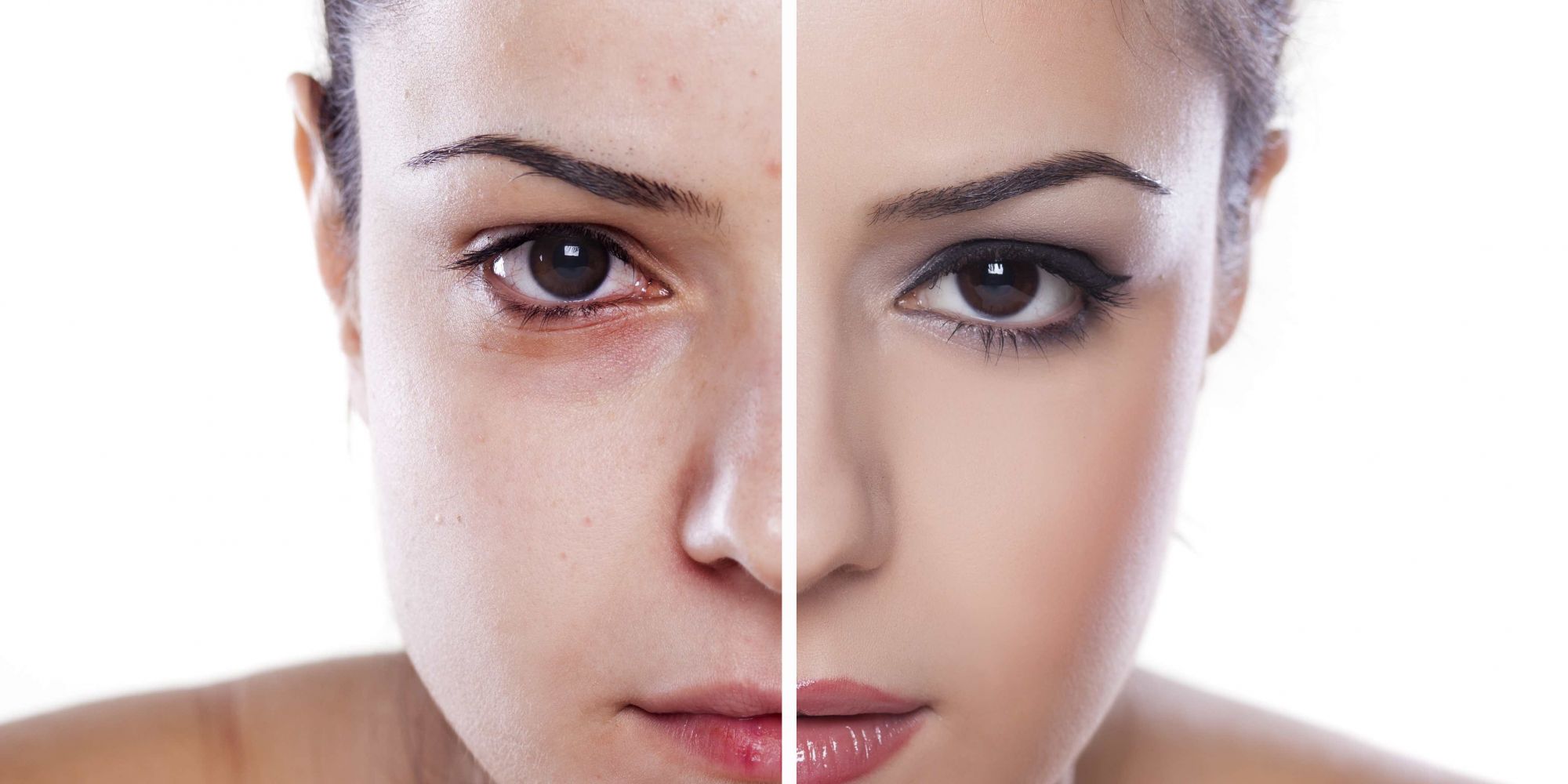
Beauty Entrepreneurs Address Whether Retouched Images Should Come With Warnings
In this edition of Beauty Independent’s ongoing series posing questions to beauty entrepreneurs, we ask nine founders: What do you think of the French law that mandates warning labels on retouched images?
- Lesley McIntosh Founder, Luvi Beauty
It’s good that the French have recognized a major problem and are attempting to address it. That said, the unrealistic images that young people are exposed to goes beyond traditional paid advertising, especially in today's world. In addition to eating disorders, I have been shocked at the growth in young women electing to have cosmetic procedures to alter their bodies and faces to look like someone else. In some cases, they’re putting themselves at risk to have these enhancements. I'd be willing to wager that they're more influenced by what they're seeing in social media and so-called reality TV than anything else. Therefore, I don’t know if a similar law in the United States would truly address the underlying issue. What can you do when we live in a world of filters? However, at the very least, these laws could inspire more truth in advertising across the board.
- Ikram Elharti Founder, Sahara Rose
This decree came in shortly after another ban on super-thin models. Definitely, these are all good measures because generations of women and men have had their self-esteem affected by comparing themselves to unattainable, unrealistic, inhuman images. When looking at generalizing this law globally or to other nations, other aspects should be taken into considerations. First, standards of beauty are not universal. While some cultures consider super thin as the optimum, others don’t. Another thing with the law is that it touches only commercial publications, not TV spots. You might find a lot of models that do transformative surgeries and facial enhancements, how would this law tackle that? I sincerely think that regulating is not a panacea that will solve the problem. Education starts from home and school. Communication and leading by example is a more collaborative rather than a restrictive or regulatory way. The U.S. is a pioneer and started this debate very early on. You find a diverse range of models from different backgrounds and sizes in some teen-oriented fashion stores. Also, there have been initiatives taken by the media. We have to give credit to Allure for no longer using the word anti-aging. That’s another beautiful example that society is striving towards real and significant change in the beauty industry.
- Sarah Biggers Founder, Clove + Hallow
I am on the fence. I believe the aspirational component of advertising is important, so I understand why photos are photoshopped, plus there are a lot of old-school tricks that do not involve post-processing that the warning label wouldn't account for such as using fake lashes while promoting a mascara. On the other hand, many people and companies cross the line of what I consider acceptable editing by elevating photos to textures and colors that simply can't be achieved in real life. For consumers, there is an awful lot of pressure in terms of image that stems from what we believe is real, but is really photoshopped. For a makeup artist and brand owner like myself, it creates an environment of unrealistic standards and expectations that you're constantly having to battle against.
- Shubhangini Prakash Founder and CEO, Feather & Bone
I believe we are in an era of pure and natural beauty. When you have photoshopped images, you are removing that element of honesty and purity. It gives people an idea that you can have perfect skin if you use xyz products. But the truth is, there is beauty in imperfection and your skin will never be 100% perfect. The odd pimple or blackhead is inevitable. Further, it makes it seem the product may or may not be as good as the image is showing. It's essentially selling a lie. How do we know that this product will have the result the image is showing? Also, as we age, there is beauty in that and, with photoshopped images, are adding stress to something inevitable. I do think this is especially important in the US. French beauty is already so much forward in a natural look and the U.S. should catch up. In an era where selfies dictate everything, let's stick to no photoshopped images.
- Robbin Turner Founder and CEO, Violet Botanical Skincare
Regarding the French policy on photoshopping, I understand their concern. Growing up, I never had an eating disorder, but looking at the models played a psychological game on me. I desperately wanted to look like the girls in the teen magazines. To me, the messages the photos portrayed made me feel like I would never be the cute girl next door if I didn't look like the models. For starters, my body type doesn't fit the model mold. I have curvy hips, thick thighs and a round bottom. The women in my family are not svelte people. It was never going to happen for me. It took a while for me to gain body confidence. If labeling the photos will dissuade one young girl from disordered eating or body insecurities, I'm all for it. Secondly, we as parents and women have to educate young girls about body positivity. Focus on being healthy, happy and authentically you.
- Tony Artur Co-founder, A Beautiful Life Brands
The law makes perfect sense and should be adopted as an industry best practice in the States regardless of statutory requirements. Our industry can't hold itself to be aspirational if it doesn't promote standards that are in some way attainable.
- Charlotte Devereux Co-founder, Girl Undiscovered
We have all seen the impact that photoshopped and filtered images can have on women of all ages. The new French policy requiring labels on photoshopped images - mostly aimed at avoiding images of excessively thin models - is, in our opinion, an incredible milestone for the industry and a positive move away from the pressures of the unattainable. However, there is still a way to go, as changes to hair colour, skin colour and nose shape are still allowed under the policy. At Girl Undiscovered, we are working to focus the beauty conversation toward the belief that naturalness and imperfection should be celebrated. All of the women in our images remain untouched, and we feel that every woman should honour her spirit and stay true to herself. As a brand, we emphasise honesty, openness, realness and a love of life, sharing real stories about real women. We are partners in a global movement towards female empowerment and look forward to the day when the policy excludes all alterations.
- Cynthia Besteman Founder, Violets Are Blue
Even though making companies put a photoshopped stamp on the picture is a huge step, it's hard to envision the original pic when all we see is the after. Being over 50 and a skincare brand owner, I find myself looking at these shots and thinking, seriously? Do they really look like that, at that age? It's a total bummer. I begin to look at pictures of myself differently. You think about what can be hidden or shaved off, and that is not good. I can't imagine what it must be like for younger women. No matter what products we use, treatments we have, we will never, ever look like those models, and even they don't look like that. It can really affect a person's self esteem. I look forward to other companies and countries jumping on this beauty trend, and this photo of me is not photoshopped.
- Katharine L'Heureux Founder, Kahina Giving Beauty
It's a positive move. People need to realize that these images aren't real. These false images create unhealthy goals that people should not aspire to. I would love to see the media and fashion industries embrace these policies in the U.S.
If you have a question you’d like Beauty Independent to ask beauty entrepreneurs, please send it to editor@beautyindependent.com.








This most certainly needs to become a worldwide law. Many, many women suffer from body dysmorphia and to see an actresses/models look so flawless in photos with perfect har, skin, body etc. and then see them when they post a real photo of them-self and they really bad acne issues or actually thicker then the photo shows is a real problem. It teaches women/young girls you will not be loved if you don’t look like this because men/young boys are in love with an image that is not real instead of learning to appreciate the beauty within a person instead of the exterior.